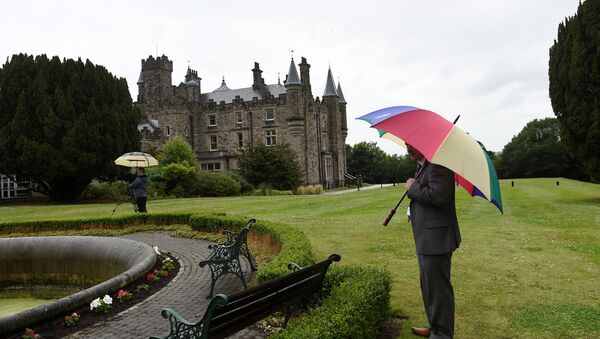More people in Northern Ireland have committed suicide in the two decades since the Good Friday Agreement of 1997 than were killed in the three decades of armed conflict in the country known as "The Troubles," according to the United Kingdom's Mental Health Foundation (MHF).
The findings are based on the work of Dr. Iris Elliot of the MHF who, along with mental health activists at the House of Commons in Westminster, called for action to be taken to combat the country's "catastrophic levels" mental illness February 20.
Standing room only at Mental Health in Northern Ireland meeting in Westminster. Huge challenges with provision of services and resources. More people have died by suicide in the past 17 yrs than were killed during 30 yrs of conflict. @mentalhealth pic.twitter.com/0cMwjFvw9p
— Toni Giugliano (@ToniGiugliano) February 20, 2018
"In Northern Ireland, more people have died by suicide in the past 18 years than were killed during 30 years of conflict."
— Mental Health Fdn (@mentalhealth) February 20, 2018
We need action now, says @iris_elliott: https://t.co/KeZNNMA7AN
'More people have died by suicide in the past 17 years than were killed in 30 years of conflict prior to the Belfast agreement' — Northern Ireland delegation bring mental health crisis concerns to Westminster amid political stalemate pic.twitter.com/hJBymK3XT1
— Cal Strode (@CalStrode) February 20, 2018
Between 1969 and 1997 approximately 3,600 people died as a result of intense paramilitary violence between the forces of the United Kingdom and Irish Republicans which encompassed terrorist bombings, forced disappearances and assassinations. Twenty years after the conflict came to an end, at least 4,500 confirmed suicides have been registered in Northern Ireland.
A January 2017 report into the state of mental health in Northern Ireland drew a conclusive link between the prevalence of suicide and what has been called "trans-generational trauma" resulting from violence experienced or witnessed during the Troubles.
It also noted that the amount of spending on treatment for mental illness and disability in Northern Ireland is half of that spent in England, causing a chronic shortage of essential and specialist services needed to combat the problem.
If any of the issues raised in this article concern you, help is available at the Samaritans on 116 123 or (028) 9066 4422.


